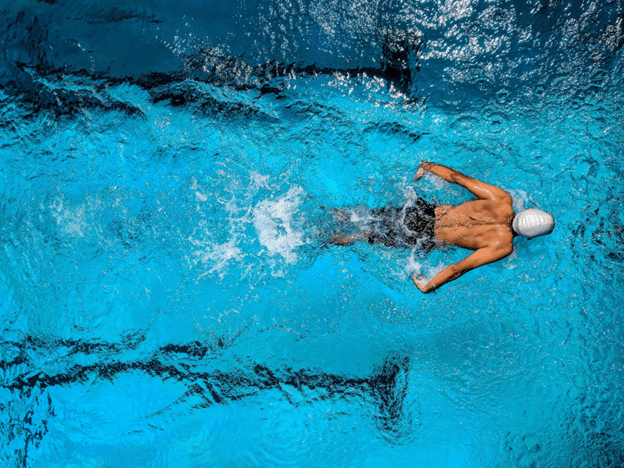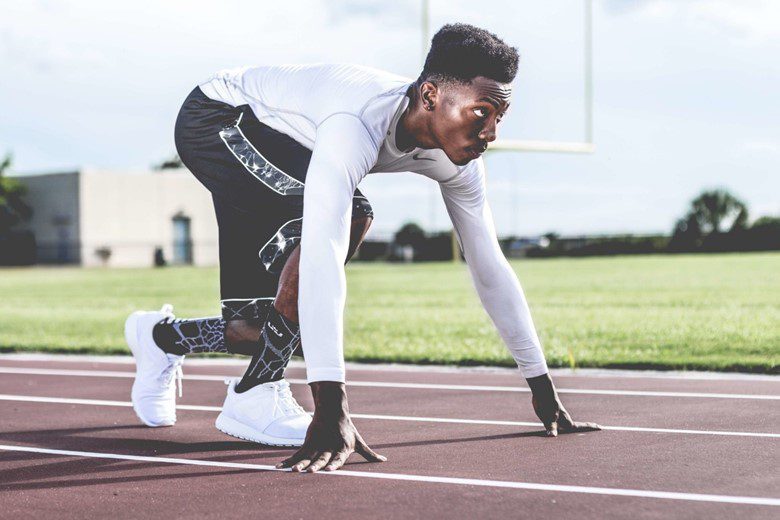In the realm of sports and athletics, physical strength and fitness are critical to success. It‘s important to understand that mental toughness and psychological well-being are equally crucial for retaining strength and performance. This is where sports psychology enters the picture.
Sports psychology studies the psychological aspects that affect an athlete’s general well-being. In this article, we will look at the eight most important benefits of sports psychology for retaining strength and improving performance, and loads more.
What is Sports Psychology?

This subfield of psychology involves studying the psychological aspects that impact a person’s sports performance, physical activity, and general well-being.” It blends psychological concepts with sports science to better understand and improve an athlete’s mental capabilities, mentality, and psychological resilience.
Athletes, coaches, teams, and even fitness fans can benefit from sports psychologists. They can employ a variety of psychological strategies and treatments to address issues. Those issues include motivation, focus, confidence, stress management, goal setting, visualization, and collaboration.
What is the Primary Goal of Sports Psychology?
The basic purpose of “sports psychology” is to improve a performer’s mental toughness, cognitive skills, and psychological well-being. These result in improved athletic performance. It assists athletes in overcoming mental hurdles, managing anxiety and stress and helps them develop self-confidence. With it, they can also improve attention and concentration, and develop effective coping techniques.
Sports psychology ideas and practices may be used in a variety of sports and physical activities. They can be employed in team sports, individual sports, endurance events, and high-intensity training.
Athletes and coaches frequently engage closely with sports psychologists to analyze their mental strengths and weaknesses. They identify areas for growth and develop personalized techniques to improve mental abilities. Individual or group sessions may be conducted.
Performance feedback is provided, and relaxation and visualization methods are taught. It’s followed by facilitating goal setting and assisting in building pre-performance routines.
Athletes can obtain a competitive advantage by incorporating sports psychology into their training. They can do so by strengthening their mental resilience, attention, confidence, and general psychological well-being. It acknowledges the inextricable link between the mind and body and improves an athlete’s overall performance.
What are the Benefits of Sports Psychology in Maintaining Strength?

The following are the potential benefits of adopting sports psychology in everyday routine to maintain health and overall well-being.
-
Enhancing Mental Toughness:
Sports psychology provides players with the skills and tactics they need to build mental toughness. It teaches players how to be resilient, deal with hardship, and overcome obstacles. Athletes who improve their mental toughness may stay focused, motivated, and driven even in the face of losses or fierce competition.
-
Stress and Anxiety Management:
Stress and anxiety can have a substantial influence on an athlete’s performance. Sports psychology teaches players how to regulate and decrease stress, allowing them to perform at their peak under pressure. Athletes can maintain a calm and concentrated state of mind during vital periods by adopting efficient stress management strategies.
-
Improving Concentration and Focus:
It is critical for best performance to maintain unbroken concentration and focus. Athletes are taught sports psychology practices such as mindfulness and visualization. This helps them improve their capacity to concentrate and stay present at the moment. They can also improve their precision and accuracy by improving their attention.
-
Goal Setting and Achievement:
Goal setting is an essential aspect of any athletic journey. Athletes may benefit from sports psychology by defining objectives that are realistic, quantifiable, and attainable. A clear path to success allows athletes to stay motivated. It helps them track their progress and feel a sense of satisfaction when they reach their goals.
-
Building Self-Belief and Confidence:
Confidence is a critical component of optimal performance. Athletes may increase self-belief through sports psychology by recognizing their talents, cultivating a positive mentality, and addressing self-limiting beliefs. Moreover, with enhanced confidence, they can push their limits, take risks, and perform to their full ability.
-
Improving Communication and Team Dynamics:
Sports psychology emphasizes the significance of collaboration and efficient communication in addition to individual athletes. It teaches players how to communicate more effectively with their coaches, teammates, and support personnel.
Stronger team dynamics result in improved cooperation, understanding, and a supportive atmosphere. All of these contribute to overall strength and performance.
-
Developing Coping Methods and Resilience:
Sports psychology provides athletes with coping methods to effectively deal with pressure, stress, and disappointments. It aids athletes in developing resilience, recovering from setbacks, and maintaining a positive attitude. Athletes who cultivate resilience may endure trials, learn from setbacks, and continue on their path to success.
-
Promoting Overall Well-Being:
Sports psychology emphasizes players’ overall well-being. It covers aspects such as mental health, stress management, work-life balance, and living a healthy lifestyle. Athletes may enjoy a better sense of happiness, contentment, and fulfillment through increasing overall well-being. It improves their strength and performance on and off the pitch.
What is the History of Sports Psychology?

Sports psychology is a relatively young field that emerged in the late 19th and early 20th centuries. Here’s a brief overview of its history:
Early Development (Late 19th Century):
The roots of sports psychology can be traced back to the late 1800s when psychologists began studying human behavior and mental processes. However, it wasn’t until the early 20th century that the application of psychology to sports began to gain recognition.
Coleman Griffith and the Chicago Cubs (1920s):
Coleman Griffith, often regarded as the father of sports psychology, conducted one of the earliest systematic studies in the field. In the 1920s, he worked as a sports psychologist with the Chicago Cubs baseball team, studying the psychological factors that influenced performance. Griffith’s work laid the foundation for future developments in sports psychology.
Growth and Expansion (1930s-1960s):
In the following decades, sports psychology began to gain more attention. Notable researchers such as Franklin Henry, Dorothy Harris, and Bruce Ogilvie conducted studies on topics like motivation, anxiety, and skill acquisition in athletes. However, sports psychology was still considered a niche area within psychology.
Applied Sports Psychology (1970s):
The 1970s witnessed a significant shift as sports psychology started gaining recognition as a specialized field. Coaches and athletes realized the potential benefits of psychological skills training to enhance performance. Applied sports psychologists began working directly with athletes, helping them develop mental strategies to improve focus, confidence, and resilience.
Cognitive-Behavioral Approach (1980s-1990s):
During this period, a cognitive-behavioral approach dominated sports psychology. Researchers focused on how thoughts and beliefs influenced an athlete’s performance. Techniques such as imagery, goal-setting, self-talk, and relaxation exercises gained prominence. Prominent figures like Albert Bandura and Rainer Martens contributed to the advancement of sports psychology during this era.
Integration of Science and Practice (2000s):
In recent decades, sports psychology has witnessed an increased emphasis on evidence-based practice. Researchers have conducted numerous studies to better understand the psychological aspects of athletic performance. The field has become more interdisciplinary, drawing on theories and methods from psychology, neuroscience, and physiology.
Current Sports Psychology Trends:
Sports psychology continues to evolve as new technologies and research methods become available. Contemporary topics of interest include mental resilience, emotional regulation, team dynamics, mindfulness, and the use of technology in training and performance analysis. It is now recognized as an essential component of sports performance, with practitioners working across various sports and with athletes at different levels.
Future Advancements in Sports Psychology

The field of sports psychology is continually evolving and several potential advancements can be expected in the future. The integration of technology into sports psychology is likely to accelerate. Advanced wearable devices, virtual reality, and biofeedback tools can provide athletes with real-time feedback on their mental and physical states. These innovative technologies can be utilized for performance analysis, skill acquisition, and stress management.
The understanding of the brain’s role in athletic performance is expanding. Advancements in neuroscience may enable sports psychologists to develop targeted interventions. This helps in optimizing cognitive functions, attentional control, emotional regulation, and decision-making processes.
Relationship Between Sport Psychology and Over-all Performance

A research paper was published in PubMed in 2022 by Marc Lochbaun. It states that sports psychology is a fundamental principle with a goal of understanding the psychological techniques of sports. The prime purpose of the study was to observe the overall performance of the human body. The research was performed on a number of gym enthusiasts and the overall performance and psychology of the human body were observed.
The purpose of this research was to investigate the link between sport psychology and overall performance in athletes. The findings emphasize the significance of mental skill training, goal setting, and stress management in improving athletes’ performance levels.
Conclusion
Sports psychology is an important discipline that may help athletes retain strength and improve performance. Athletes may enhance their mental and emotional well-being by implementing psychological techniques. They immediately translate into greater physical strength, focus, resilience, and overall performance.
Embracing sports psychology allows players to reach their full potential and overcome obstacles. It retains a strong and competitive edge in its athletic endeavors. Give this article a read to have a better understanding of the potential benefits of sports psychology.












